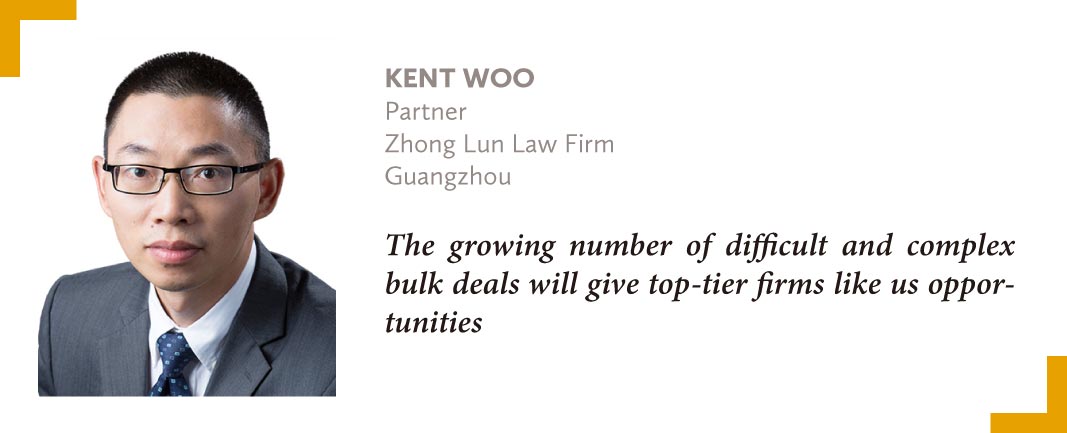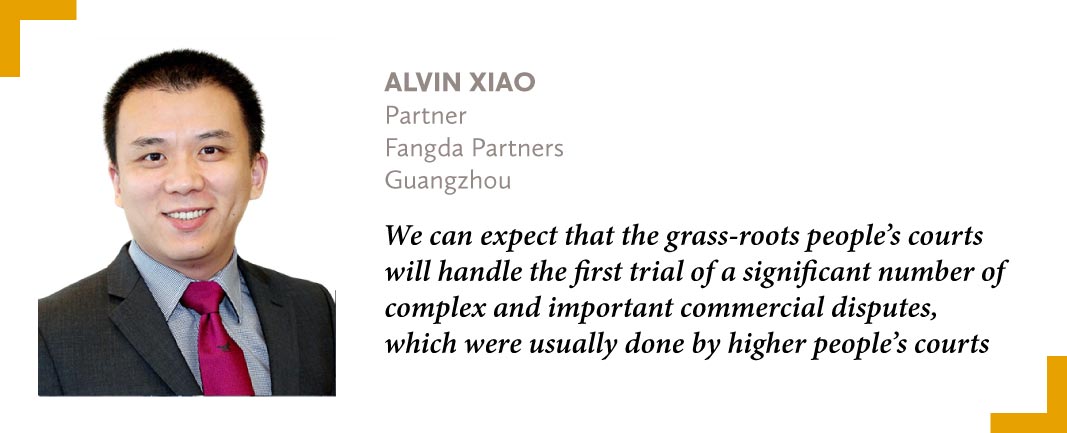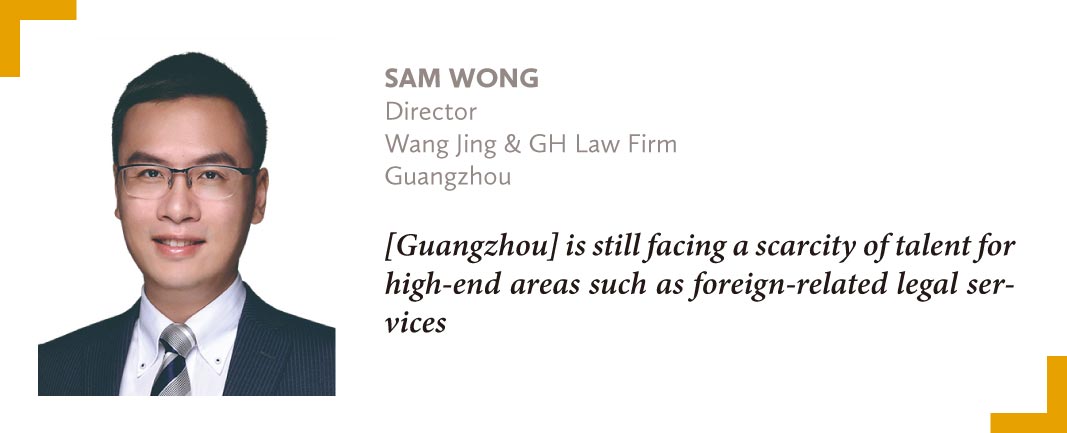Guangzhou is transforming into an advanced manufacturing hub powered by cutting-edge technology, all of which is placing greater demands on legal services. Avery Chen reports
THE SOUTHERN CITY OF GUANGZHOU has played an important role in China’s history as a nexus between East and West. Located on the northern edge of the Pearl River Delta, the city was a major terminus of the maritime Silk Road in years past. Today, it is building a global transportation and commerce hub as the railway junction of southern China and blessed with one of the largest ports in the world.
With a population of 18.7 million, and covering an area of about 7,434 square kilometres, Guangzhou is the capital of China’s richest province, Guangdong, enjoying an advantage thanks to borders with Hong Kong and Macau. The city’s latest rise has been supported by a surge in modern industries such as advanced automobiles, electronics and petrochemicals.
Competition heats up
In 2020, Guangzhou was ranked the fourth-biggest Chinese city by GDP, which grew 2.7% year-on-year to RMB2.5 trillion (USD390.7 billion). However, Guangzhou is still behind China’s other three top-tier cities, partly because the city had not develop high-tech and modern service industries sufficiently. Its manufacturing industry had also failed to keep up with the rapid pace of digital transformation
Guangzhou and Shanghai were the two major treaty ports of modern Chinese history, and became trade centres in eastern and southern China. But the latter has grown as a global financial hub and outdistanced Guangzhou. Shenzhen, home to tech giants such as Tencent and Huawei Technologies, overtook Guangzhou as the biggest economy in southern China a decade ago, and has become the country’s second-largest financial market.
Guangzhou’s transition is, however, underway. According to the city’s 14th Five-Year Plan, which was released in March, the local government has set a GDP target of RMB3.5 trillion by 2025, with an annual growth rate of 6%. The city plans to spend RMB2.6 trillion in the next five years to support 10 key areas covering technology innovation, modern industry, smart city, transportation, urban renewal, environmental protection, etc.
Jeffrey Quan, a senior partner at ETR Law Firm in Guangzhou, says the five-year plan has highlighted some promising industries. “They are automotive supply chain, biomedicine, artificial intelligence, internet content providers, logistics and urban renewal,” he says.
Against this backdrop, the Guangzhou legal market is being transformed. Law firms are expanding their businesses from traditional litigation practices into non-litigation legal work including intellectual property, outbound investment, capital markets, property, reformation of state-owned enterprises, mergers and restructuring, onshore and offshore listings, information technology, etc.
Guangzhou law firms generated RMB8.3 billion in revenue in 2020, rising 8.5% year-on-year, according to data from the Guangzhou Lawyers Association. From 2016 to 2019, the number of lawyers in Guangzhou surged by 46.3% to 15,880, while the number of law firms rose by 27.5% to 770, according to the association.
The expansion continued despite headwinds from the covid-19 pandemic. By the end of 2020, Guangzhou had 17,956 lawyers, rising 13.1% year-on-year, while law firms grew by 5.7% to 814, the data show.
“However, the majority of lawyers are focusing on low and middle-end legal services,” says Sam Wong, senior partner and director of Wang Jing & GH Law Firm, and chair of the Guangzhou Lawyers Association. “[Guangzhou] is still facing a scarcity of talent for high-end areas such as foreign-related legal services.
“The legal market competition in Guangzhou will keep rising in the next five years,” predicts Wong. “More and more law firms are scaling up businesses due to rising operation costs. As clients increase demand for legal services, law firms are putting up more money to improve the work environment, software and hardware, recruiting more administration and IT staff.”
The number of law firms with more than 100 lawyers rose by eight year-on-year, to 28 by the end of 2020, adds Wong.

With large law firms that are headquartered in Shanghai or Beijing entering the legal market, small players without expertise are being phased out, says James Chen, the managing partner of Guangzhou-based Zhuoxin Law Firm.
But specialist law firms are facing other challenges. Established in the 1990s, Guangzhou-based Wang Jing & Co Law Firm has been focusing on shipping and marine insurance industries, which makes them highly competitive in their market, with a loyal customer base.
However, “the business is highly reliant on a single industry with low-risk resistance ability,” says John Wang, the firm’s executive managing partner. “That also causes more difficulties for transformation and attracting more new customers,” he says.
Meanwhile, grass-roots people’s courts are having to handle cases with higher values, meaning the commercial cases will become more local, says Alvin Xiao, a partner at Fangda Partners.
The Supreme People’s Court issued a judicial explanation for amending the jurisdictions of the intermediate people’s courts in September. Under the new rules, grass-roots people’s courts have jurisdiction over cases that are: not related to foreign elements; with subject matter of action being not higher than RMB500 million; and where the place of domicile of one party shall be in the provinces.

You must be a
subscribersubscribersubscribersubscriber
to read this content, please
subscribesubscribesubscribesubscribe
today.
For group subscribers, please click here to access.
Interested in group subscription? Please contact us.






















